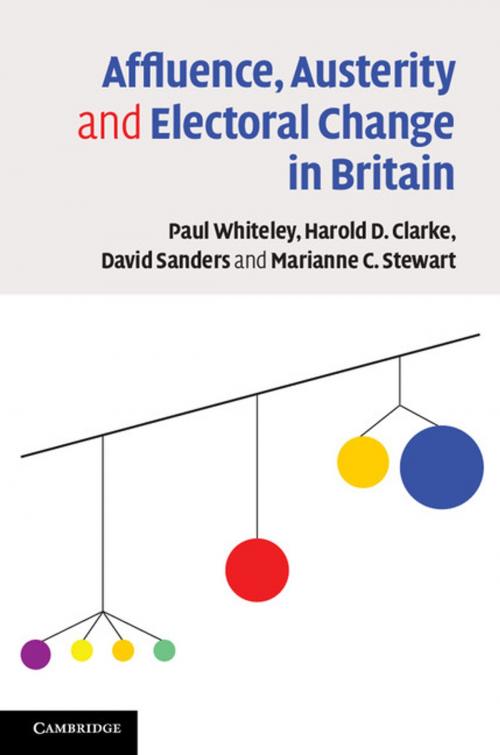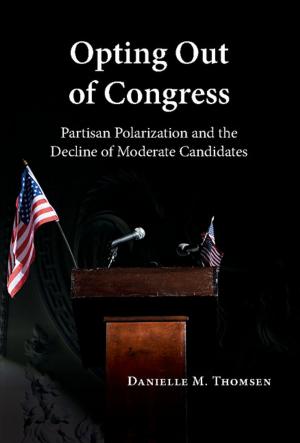Affluence, Austerity and Electoral Change in Britain
Nonfiction, Social & Cultural Studies, Political Science, Government, Social Science| Author: | Paul Whiteley, Harold D. Clarke, David Sanders, Marianne C. Stewart | ISBN: | 9781107424135 |
| Publisher: | Cambridge University Press | Publication: | September 12, 2013 |
| Imprint: | Cambridge University Press | Language: | English |
| Author: | Paul Whiteley, Harold D. Clarke, David Sanders, Marianne C. Stewart |
| ISBN: | 9781107424135 |
| Publisher: | Cambridge University Press |
| Publication: | September 12, 2013 |
| Imprint: | Cambridge University Press |
| Language: | English |
Affluence, Austerity and Electoral Change in Britain investigates the political economy of party support for British political parties since Tony Blair led New Labour to power in 1997. Using valence politics models of electoral choice and marshalling an unprecedented wealth of survey data collected in the British Election Study's monthly Continuous Monitoring Surveys, the authors trace forces affecting support for New Labour during its thirteen years in office. They then study how the recessionary economy has influenced the dynamics of party support since the Conservative–Liberal Democrat Coalition came to power in May 2010 and factors that shaped voting in Britain's May 2011 national referendum on changing the electoral system. Placing Britain in comparative perspective with cross-national survey data gathered in the midst of the worst recession since the 1930s, the authors investigate how the economic crisis has affected support for incumbent governments and democratic politics in over twenty European countries.
Affluence, Austerity and Electoral Change in Britain investigates the political economy of party support for British political parties since Tony Blair led New Labour to power in 1997. Using valence politics models of electoral choice and marshalling an unprecedented wealth of survey data collected in the British Election Study's monthly Continuous Monitoring Surveys, the authors trace forces affecting support for New Labour during its thirteen years in office. They then study how the recessionary economy has influenced the dynamics of party support since the Conservative–Liberal Democrat Coalition came to power in May 2010 and factors that shaped voting in Britain's May 2011 national referendum on changing the electoral system. Placing Britain in comparative perspective with cross-national survey data gathered in the midst of the worst recession since the 1930s, the authors investigate how the economic crisis has affected support for incumbent governments and democratic politics in over twenty European countries.















